7:06 AM: I’m up. Last night, Temporary Roommate Sarah T stopped by my room and said “I’m going to bed. I’ve left my boots outside my door to be polished, and I expect hot water in the morning to wash my person.” I accused her of being way too good at this and added “If you poop in a pot in your room, I’m not cleaning it up.”
My face is washed and I’m dressed in a black dress and white apron. My understanding is servants did not wear uniforms in the 19th century, but I’m not sure when they started.
I’ve got toast with butter and a cup of tea with milk and sugar. Tea to 19thc servants was like spinach to Popeye.
I’m going to finish my shopping list and meal plan for the day, then do dishes–there’s a sink full of them from yesterday, and if I were a good Maid of all Work, I would not have let that happen.
7:31 AM: In addition to taking cues from Hanna Cullwick’s diary, I’m also going to follow the daily tasks for a Maid-of-all-Work as laid out by Isabella Beeton in her Book of Household Management (first published 1859). You can preview my day’s work here, and here’s what she says about my role:
The general servant, or maid-of-all-work, is perhaps the only one of her class deserving of commiseration; her life is a solitary one, and in, some places, her work is never done. She is also subject to rougher treatment than either the house or kitchen-maid, especially in her earlier career: she starts life, probably a girl of thirteen, with some small tradesman’s wife as her mistress, just a step above her in the social scale…she has to do in her own person all the work which in larger establishments is performed by cook, kitchen-maid, and housemaid and occasionally the part of a footman’s duty, which consists in carrying messages.
I slept in my own bed last night, by the way, but if I were doing this right i should have slept on a cot in the kitchen.
8:15 AM: Dishes are done, cat is fed, and I started coffee brewing at the first sign of stirring in the bedchambers. Here’s what Beeton says I do next:
The general servant’s duties commence by opening the shutters and windows if the weather permits of all the lower apartments in tho housoe,she should then brush up her kitchen range, light the fire, clear away the ashes, clean the hearth, and polish with a loather the bright parts of the range ;doing all as rapidly and as vigorously as possible that no more time be wasted than is necessary. After putting on the kettle she should then proceed to tho dining room or parlour to get it in order for breakfast.
I haven’t cleaned the stove yet, it may have to wait until after breakfast. I’m heading into the “dining room” (read: only common room in my apartment) to tidy for breakfast. Beeton says “Nothing annoys a particular mistress so much as to find, when she comes down stairs, different articles of furniture looking as if they had never been dusted.” Eek. The dusting may have to wait until after breakfast, too.
8:45 AM: Dining room is tidied! I even got in a little dusting. I’m ditching my apron and putting on a little makeup, and heading out to do the marketing. I live in New York, so I have to walk and take a basket with me–not much has changed since the Victorian era.
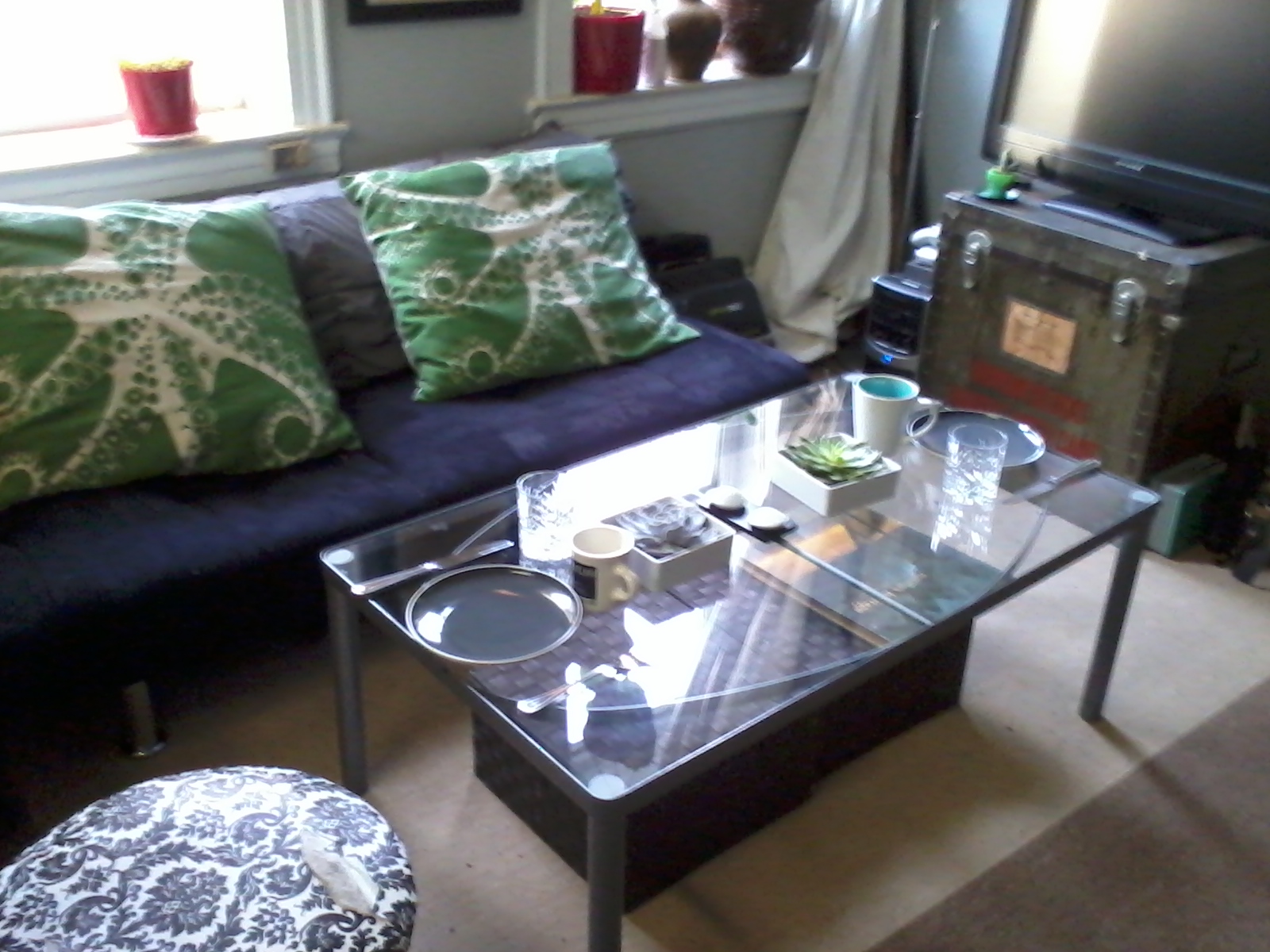 The dining room is read for breakfast.
The dining room is read for breakfast.
Fiancee Brian just woke up and asked “What’s for breakfast? Is it old timey or is it bacon?”
“Bacon is old timey!” I replied, and is for breakfast. Beeton’s suggestions for a proper breakfast can be read here.
9:30 AM: Back from the store-it’s about a 1.5 mile round trip. Getting up breakfast: toast, butter, jam, eggs (scrambled–poached is more period appropriate, but the Master of the House doens’t like the that way), bacon, fruit, coffee, orange juice.
10:30 AM: Breakfast got on the table, hot, at 10 on the dot. I even put on a clean apron to serve. I left Brian and Sarah T to make idle chit chat, and hit the bedchambers. Opened the sashes and dusted. Changed the sheets in the master bedroom; this room will need more work later. Thus would also be when I would “empty the slops,” meaning the chamber pots, but thankfully it’s 2013 and we have a bathroom.
Next, I’m going to clear and wash the breakfast dishes and sweep and mop the kitchen and dining room floor.
I mentioned to Sarah T that I felt weird that they were talking to me like normal. She offered to jump in to character, but then hesitated and decided she couldn’t order me around. I told them if they needed anything, just to let me know.
I was so hungry when I was cooking breakfast. I’ll have the leftovers–some eggs, a slice of toast with jam, maybe another cup of tea.
In case you were wondering what the rest of the household should be up to while I’m working, here’s a source from 1780–a little early for the Victorian era, but not much would have changed:
I’ll give you an account of one day, and then you will see every day. (Her day began at 9, with breakfast at 10) And then about 11 I play harpsichord, or draw; at 1 I translate at 2 walk out again, 1 I generally read, 4 we go to dine, after dinner we play backgammon, we drink tea at 7 and I work or play on the piano until 10, when we have our little bit of supper, and 11, we go to bed.
12:00 PM: Clear’d breakfast dishes and washed up. Swept whole house–kitchen, living room/dining room, bathroom, and hall. Swept outside hall and welcome mat, too. Brian complained about trash smelling, so I took trash out.
Now it’s time to get dinner up. It’s the largest meal of the day; for a dinner on a Thursday in January, Beeton suggests: ” 1. Vegetable soup (the bones of the beef ribs should be boiled down with this soup), cold beef, mashed potatoes. 2. Pheasants, gravy, bread sauce. 3. Macaroni.” I’m going to sear a beef roast with butter and onions, then cover it up with water, and add half a cabbage, and a butternut squash, salt, pepper, “made mustard” and a slice of toast to thicken it, as per Beeton’s suggested recipe. I’ll simmer low two hours, and when the meat is done, I’ll pull it out and slice it. Soup will be served first, then meat with potatoes and a scoop of macaroni and cheese–blue box, but 19th-centuried up with a blade of mace in the boiling water, and topped with fresh grated cheese and nutmeg.
On my second cup of tea with milk and sugar. Did I mention I only slept about 5 hours last night?
So far the cat has been the most demanding member of the household.
12:35 PM: I also have some veal bones to throw in the soup to make it richer. I’m going to add wine and celery salt. Turns out I have no mustard, or even vinegar, so I put in lemon juice and dried herbs instead. It’s going to simmer for an hour.
Brian was in the kitchen chatting with me; I could barely respond. I was both tired, and focused on getting my task done. I certainly didn’t feel pretty or amorous. I don’t know how Hanna Cullwick did it.
1:45 PM: I am all kinds of achey so I took two Tylenol. Sarah T. just asked if we could have bread crumbs on the macaroni, so I guess I really am 19th-centuring it up and doing it casserole style. I’ve been cooking the last hour. I’m going to sit down and eat at 2; not at the table, but at the kitchen counter. I think Brian and Sarah were to weirded out this morning when I went to do more work while they ate. I’m about to dish up dinner, and I’ll post some photos afterwards.
Brian: “Why are we eating dinner at two??” Me: “Dinner is in the middle of the day.” Brian: “Well, that’s old-timey and weird!!”
2PM: Brian: “Is there bread” Me: “Of course, sir! Right away!” Sarah T: “You have to cut it in front of us, so we know you’re not stealing it.”
3pm: Some photos from dinner.
 Mace, for the water to boil the pasta.
Mace, for the water to boil the pasta.
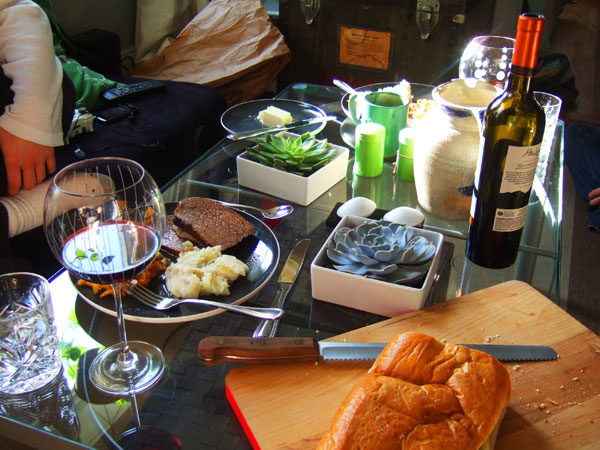 The Table.
The Table.
3:30 PM: I cleared the dinner dishes and I’m working on washing up. I’ve decided to get my cooking done for the rest of the day–tea and supper are served cold, so if I cook now, I can tidy the kitchen and not have to fuss with it the rest of the day. That involved making a tart for tea, from puff paste I have in the freezer and homemade jam from my mom (here’s Beeton’s recipe) and roasting a chicken to serve cold at tea/supper. Luckily, I don’t have to pluck and gut it.
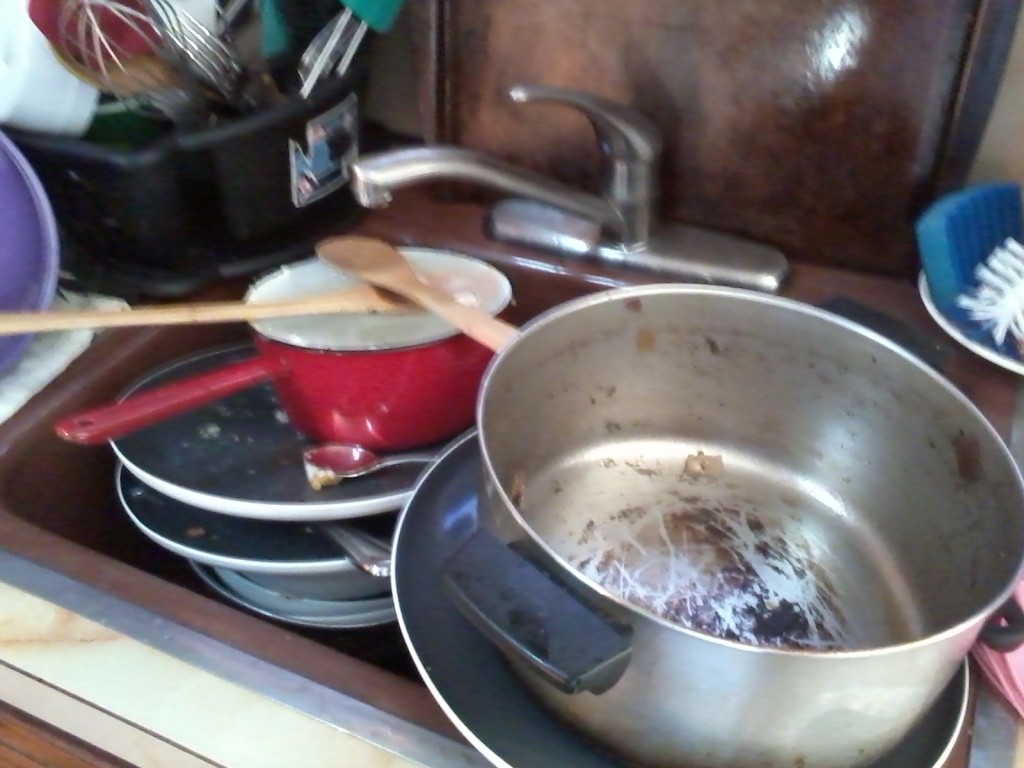 Neverending dishes.
Neverending dishes.
Fowls to be tender should be killed a couple of days before they are dressed when the feathers come out easily then let them be picked and cooked In drawing them be careful not to break the gall lag as wherever it touches it would impart a very bitter taste…(Mrs. Beeton’s roast fowl recipe)
4:30 PM: I have to admit, that at three pm, I wanted to quit. I am EXHAUSTED. It is unfortunate I didn’t get a full night’s sleep last night, but at the same time I think it’s more accurate to how I would have felt EVERY DAMN DAY if this were my life. I just wanted to quit and go take a nap in my bed.
But I didn’t. And I found a second wind. Chicken and Jelly Tart went in the over. I took out the recycling. I did all the dishes, again. I wiped down the counters. I will keep going until 10:30 pm, when my day is done.
Even Brian is sad. “I don’t like this. You’re my partner–I don’t like you calling me sir.”
I’m even too tired to talk to anyone. I just don’t have the mental fortitude.
5PM: One of the jobs I was supposed to do this morning was shine the boots. I don’t even own any shoe polish, so the best I could do was take three pairs of boots out into the hall and waterproof them, which did need to be done. I also “delivered a message,”by spending a few moments on Facebook inviting a few friends to an Epiphany party on Sunday.
I’m taking a moment to check in with Cullwick and Beeton to see what I’m supposed to do the rest of the evening:
- Finish cleaning kitchen: mop, and wipe down stove and clean oven, when it cools.
- Clean and dust the Parlour
- Clean Window Sills
- Clean Pantry
- Unpack a Hamper
- Tea & Clean Away
- Clean the “Passage” – hang up coats in hall
- Clean “Privy” – Bathroom
- Supper & Clean away
- Turn Down Beds
- Wash sink down
Mrs. Beeton also thinks I should find time to “do a little needlework” but I say screw her.
5:05 PM: I realized I forgot to baste the chicken. Like, at all. motherfucker. I hope it’s not too dry…
6:45 PM: Photos of Tea Time: roast chicken, breand and butter, blackberry jam and puff paste tarte.
Have to clear away, strip the chicken carcass and put away; then, into the passage to hang up coats, then clean the privy.
8:30 PM: Clean’d the bathroom on my knees. My hands are dry and my knuckles and back hurt.
My friend Eva reminded me of this image shot by photographer Hal Hirshorn. Recreated domestic servant at the Merchant’s House Museum. Eva is the model.
10 PM: Supper. Just a little nosh at the end of the day: bread, butter, cheese, cold beef, leftover tart.
10:30 PM:
Finish cleaning kitchen: mop, and wipe down stove and clean oven, when it cools.Clean and dust the ParlourClean Window Sills- Clean Pantry
Unpack a HamperTea & Clean AwayClean “Privy” – BathroomSupper & Clean awayTurn Down BedsWash sinks down
Bet I could have cleaned that pantry if I wasn’t blogging.
And now, I’m going to end my day just like Hanna Cullwick: “Wash’d in a bath & to bed.”
What have I taken away from this? I realized what I did today is about the same workload of your average stay-at-home Mom or Dad.
I’d be interested to hear your thoughts.
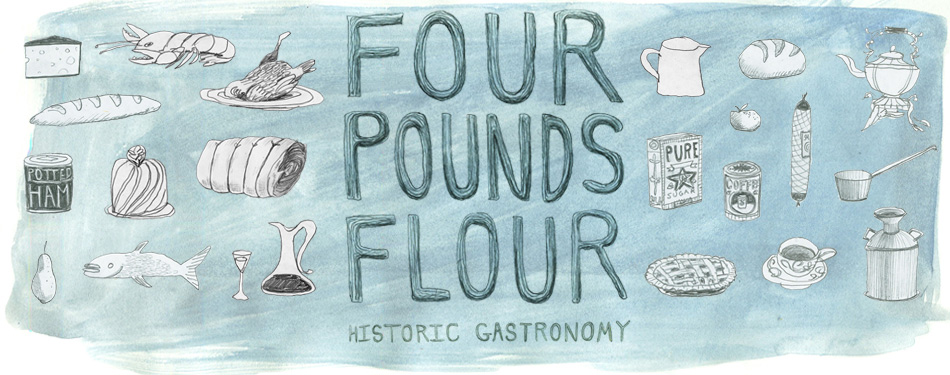

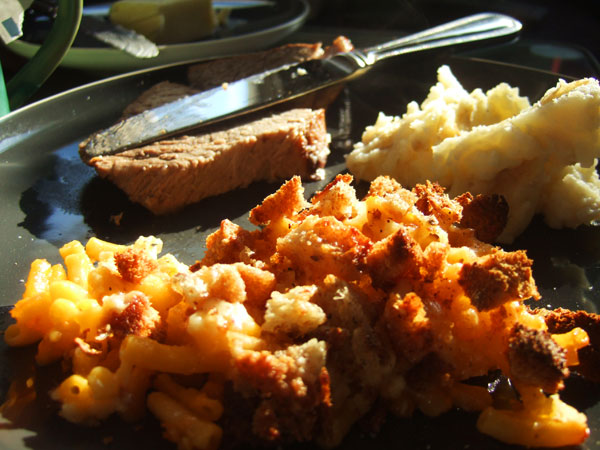




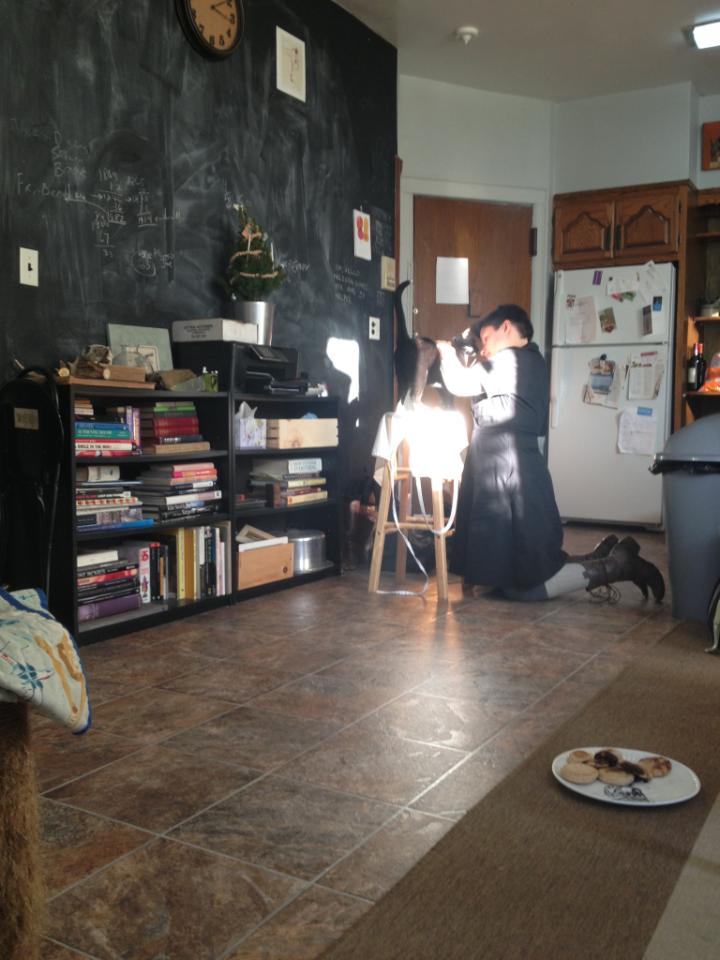
Oh dear. This should be interesting. Best of luck.
Thank you:)
You should combine this project with your “Drink like a Colonial” project. ;-)
I think i’m going to need a drink before the day is done!
I think uniforms began in the late Victorian era. They were definitely used in the 1890s. Came into their own in Edwardian England. But aprons are older. The pinafore came out the 18th century and became popular in the early 19th century.
And aprons are necessarily! I’ve gone through two already. I have read that uniform came into style because by the end of the century, nice clothes became available more cheaply, and it was difficult to tell who was servant and who was master–although that was always the complaint against the Irish, who were known to dress to the nines.
This whole thing is AWESOME, btw!
When Hannah Cullwick was working (1850s-60s), female servants did not wear uniforms. They were expected to appear neatly attired, in varying degrees of formality depending on their position within the household, or the task at hand. Even if they didn’t have time to put on a nicer dress, a clean white apron was a must when dashing from the kitchen to answer the front door. Some families provided a clothing allowance, or allowed certain servants to take advantage of cast offs. Others expected the servants to provide their own wardrobe, and were known to complain when their servants dressed too finely on their days off…male servants in England had been liveried for generations, and I think some of the spiffier American households followed suit. Middle class American households usually had only female house servants anyways. Forgive the ramble — I’ve done way too much research on mid-19th century servant clothing ;-). Since it was all mid century, I have no idea when uniforms came in for the girls. So I’m going to endorse Elena’s answer!
Oh, and btw, aprons were worn by everyone, not just servants. Even during relatively formal occasions — there were dress aprons made of embroidered silk with boned waistbands…
I remember specifically a painting that was on display at your old job of a servant in a gorgeous (silk?) dress. do you remember the one I’m talking about? I can’t find it online.
I hope that toast had cooled properly and that you didn’t use too much butter. Godey’s Lady’s Book says hot bread and butter for breakfast is “hostile to health and female delicacy.” (As I happen to have been reading yesterday, researching ideas about bread.) But then delicacy is probably straight out for a servant anyway, and you probably want to stop short of taking too much 19th-century health advice…
That is amazing. And no, it was hot and buttered and I clearly poisoned my family.
When you recover a bit, I took the opportunity to write up what I had on the hot bread business. I wouldn’t want you to derange your stomach lining or anything…
http://www.rootedcook.com/wp/2013/01/the-dangers-of-eating-hot-bread/
I am definitely interested. I was wondering if it was the kind of a rule that everyone broke….
I was interested in all of the cleaning that went on. My house is much less clean and tidy and I have all the modern inventions to make it easy to make it so. I also want to spend time with my family after dinner dishes are done instead of washing the kitchen floor and cleaning the bathroom which it needs more often then I do it. It sounds exhausting!
I would think that cleaning would have been more of a necessity then, given the amount of soot in the air (both inside and outside), dust mixed with dried horse manure, etc.
Oh, that’s right! I didn’t think about that. I have a niece who has a very romantic idea about this period of time. She needs to read Sarah’s posts. I’ll stay in 2013, thank you very much. : )
agreed! 2013 is good for me.
That’s why they had servants.
Delightful! I suspect my family would be altogether too happy to have me be a servant for a day (or indefinitely) and to call them “Miss” and “Ma’am.” Plus they don’t get up till 11 or so, so I’d have plenty of time to clean, prep to cook dinner, etc., without constant extraneous demands.
It’s just uncanny how I’ll say to myself ” gosh I wonder how Lohman is?” And upon reading your blog find you have yet again written about some form of self inflicted punishment.
love you, Kristina:)
Wow! What a lot of work that was, and seems rather thankless too. I suppose the best a person could feel was grimly satisfied that she had done her work and (hopefully) done it as well as she had designed to….unless she had the diversion of a kinky relationship with her boss, I suppose. This article both fascinated me and made me laugh heartily (at your beleaguered pluck)…thank you for sharing this experience!
Thank you! And yes, not just thankless, but many Victorian seemed to loathe their servants. Cullwick both seemed to enjoy what she called “simple work,” and I do think her sweetheart’s fetishes were a major motivator, too. However, I didn’t succeed at feeling sexy at any point during the day, so I think she’s made of stronger stuff.
Pingback: Living History: Tea and Two Slices « Four Pounds Flour
Quality content is the important to attract the users to visit the website, that’s what this web page is providing.
This is so interesting and it reminds me a lot of preparing for hosting Thanksgiving…and it also reminds me of having company for a period of time. Just as the dishes are finished for one meal, it’s time to prep for the next. One reason it was such a challenge, I imagine, was because you were not used to working like this. Our lives are mostly quite leisurely. The floor does not have to be swept and mopped every day, nor the living room dusted. Neat experiment and the food you prepared looks wonderfully delicious.
All of these experiments have given me real perspective on what it meant for our grandmothers to cook–and why many were so willing to give this job up and embrace convenience food. Now we cook for fun, which is such a luxury. I think historically, it was drudgery.
Pingback: victorian misappropriations | Two Dozen Avocados
Pingback: Everything in its place – West Coast Editorial Associates